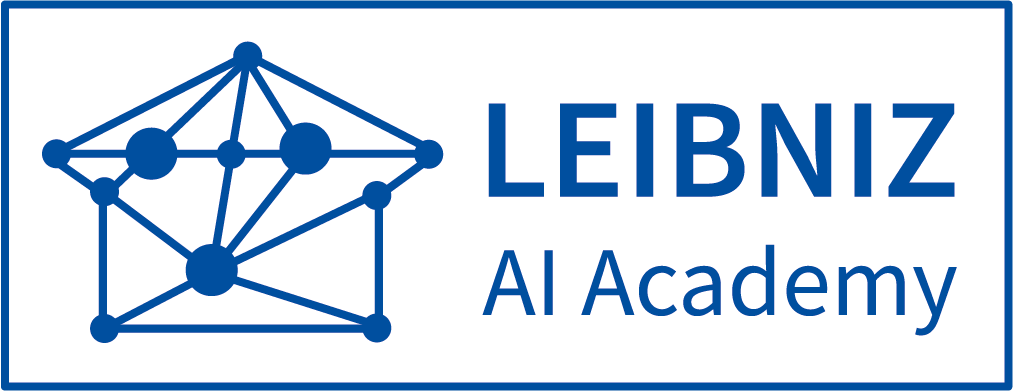This section provides an overview of the foundational courses of our Micro Degree Programmes. Further details on locations, timetables, and the semesters in which the courses are offered can be found in the university’s online course catalogue.
Artificial Intelligence



Responsible: Prof. Dr. techn. Wolfgang Nejdl
Institute of Data Science
Beschreibung: Inspired by the CS188 course at the University of California, Berkeley, and developed in coordination with its instructors, we offer the courses Artificial Intelligence 1 and 2. These courses are delivered online as live sessions and subsequently made available as recordings. Exercises are conducted in a flipped classroom format with live Q&A sessions and include two mini-projects per semester.
The module covers the following topics: search and constraint satisfaction, Markov decision processes, hidden Markov models, reinforcement learning, probabilities and Bayesian networks, as well as machine learning methods such as Naive Bayes, logistic regression, decision trees, and neural networks.
Credit Points: 5 ECTS
Language: German
Machine Learning



Responsible: Prof. Dr.-Ing. Bodo Rosenhahn
Institute for Information Processing
Description: The course is devoted to both classical and contemporary paradigms of machine learning. Its aim is the “artificial” generation of knowledge from experience or examples: an artificial system analyses examples (data) in a structured manner, learns specifically from these examples, and, after completing the learning phase, is capable of generalising to new situations. In addition to unsupervised and statistical learning, methods such as Adaboost, Random Forests, and Neural Networks are also covered. Application examples from image-based object analysis and classification provide up-to-date practical relevance.
The syllabus includes, among other topics: feature extraction, shape signature, shape context, unsupervised learning (clustering methods), minimum spanning trees, Markov clustering, Bayes classifier, appearance-based object recognition, hidden Markov models, principal component analysis (PCA), Adaboost, Random Forests, and Neural Networks.
Credit Points: 5 ECTS
Language: German
Data Science Foundations



Responsible: Prof. Dr. rer. nat. Marius Lindauer
Institute of Artificial Intelligence
Description: Inspired by the “Data8” course offered by the Data Science Institute at the University of California, Berkeley, which is available to all students and developed in close collaboration with its instructors, this course is aimed at students with no prior programming experience. It introduces the fundamentals of algorithmic data handling at a level appropriate for learners from a wide range of academic backgrounds.
The traditional teaching approach is reversed: Students engage with practical questions from the outset and use a centrally maintained Jupyter Notebook environment to focus directly on essential programming tasks. The course covers key foundations of data science, including causality and correlation, big data, data extraction, data visualisation, random variables, sample comparisons, hypothesis testing, estimation and prediction of test variables, classification, and ethical questions in data science.
In parallel with the relevant mathematical concepts, the course also introduces programming concepts such as data types, variables, assignments, control structures, and data processing functions. The course is loosely based on the online book Computational and Inferential Thinking.
Credit Points: 5 ECTS
Language: English
Stochastic Foundations



This course can currently only be viewed; assessment is not possible at the moment!
Responsible: Prof. Dr. Stefan Weber
Institute of Actuarial and Financial Mathematics
Description: Students acquire a solid understanding of the fundamental concepts and methods of probability theory and statistics. They learn to apply these tools appropriately to solve practical problems and implement them algorithmically. Topics include, among others: probability spaces, random variables, distributions, limit theorems, fundamentals of stochastic processes, basic concepts of statistics—especially estimators, confidence intervals, hypothesis testing, Bayesian statistics, and linear models—as well as algorithms for simulation and statistical procedures.
Credit Points: 5 ECTS
Language: English






